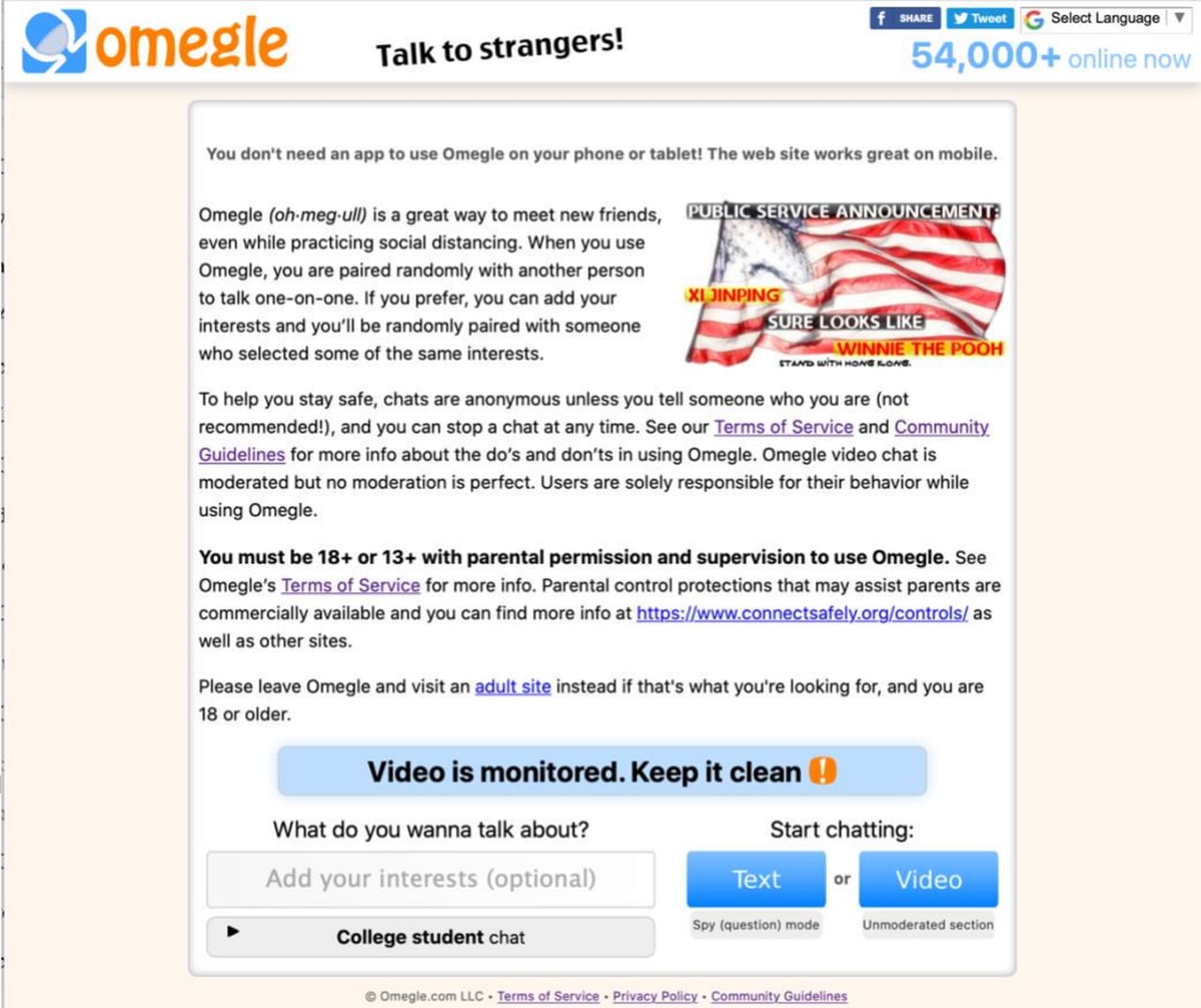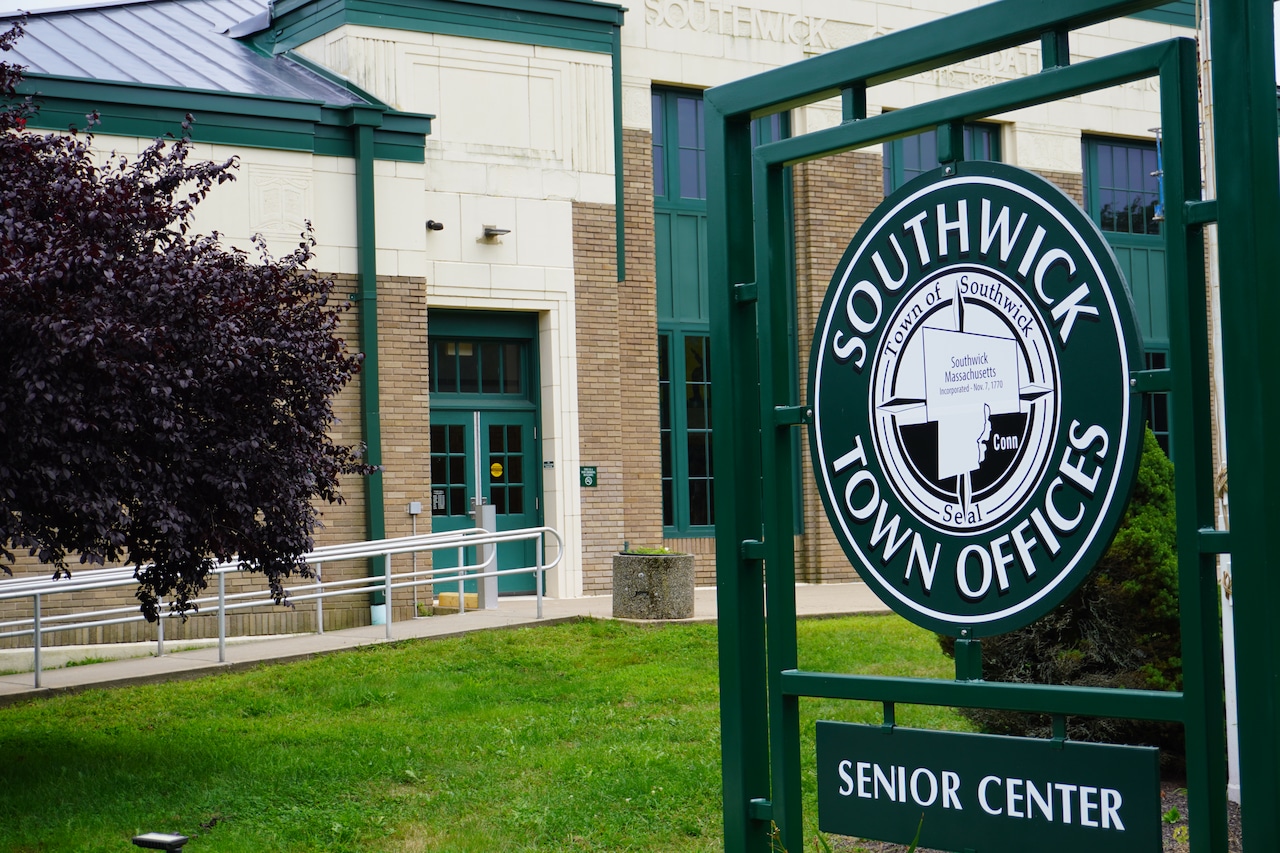A popular online chat site, Omegle, has shut down after 14 years follow a lawsuit in Oregon that claimed an 11-year-old girl was paired with an adult, who sexually abused her.
“By failing to take action to prevent predators from carrying out these crimes against helpless children on Omegle and failing to cure its negligent design and manufacture, these predatory users felt empowered and incentivized to continue their abusive and malicious use of the product,” the lawsuit claimed.
The website now only includes a long letter from founder Leif K-Brooks, who started the website when he was 18 years old and living with his parents in Vermont.
- Read more: Bernardston man faces child rape charge after allegedly having sex with underage girl he met online
“In short, the Internet opened the door to a much larger, more diverse, and more vibrant world than I would have otherwise been able to experience; and enabled me to be an active participant in, and contributor to, that world. All of this helped me to learn, and to grow into a more well-rounded person,” K-Brooks wrote.
But he also acknowledged “every tool can be used for good or for evil, and that is especially true of communication tools, due to their innate flexibility.”
“The telephone can be used to wish your grandmother ‘happy birthday’, but it can also be used to call in a bomb threat,” he wrote. “There can be no honest accounting of Omegle without acknowledging that some people misused it, including to commit unspeakably heinous crimes.”
He said the website worked with law enforcement agencies and the National Center for Missing and Exploited Children.
“There are ‘people’ rotting behind bars right now thanks in part to evidence that Omegle proactively collected against them, and tipped the authorities off to,” he wrote.
But he felt the world has become worse in recent years and that “the fight against crime isn’t one that can ever truly be won.”
However, the lawsuit claims differently.
“Omegle acknowledges that its product is home to predators but puts the onus on its users to not be preyed upon,” it states, adding that “Omegle’s content moderation practices are reckless to the point of being altogether absent.”
The website, which had 66,000,000 monthly visits, previously had a section on it’s website that stated, “Predators have been known to use Omegle, so please be careful,” according to the lawsuit.

The site’s online invite to “Talk to Strangers!,” along with its inherent dangers and lack of protections – such as pairing children with adults, and not verifying any user’s age or monitoring or flagging abusive users – is reckless and negligent, the suit contends.
In 2021, BBC wrote about the website stating that in two hours journalists were connected at random with 12 masturbating men, eight naked males and seven porn adverts. And in 10 hours, the journalists were connected with dozens of under-18s, and some appeared to be as young as seven or eight.
“We were also paired at random twice with what appeared to be young prepubescent boys masturbating live on the video chat,” the BBC wrote.
One of the issues, according to the lawsuit, is that there was no age verification.
“The speed in which you found possible child sexual abuse material should underscore the necessity of age verification on social media platforms,” a spokesperson from the National Center for Missing and Exploited Children told the news outlet.
Other news articles also talked about the dangers of the website.
“Omegle knew or should have known that predators use its product to groom and exploit children sexually,” the lawsuit stated. “By failing to take action to prevent predators from carrying out these crimes against helpless children on Omegle and failing to cure its negligent design and manufacture, these predatory users felt empowered and incentivized to continue their abusive and malicious use of the product.”
In his letter, K-Brooks also thanked the many users who used the website for good.
“From the bottom of my heart, thank you to everyone who used Omegle for positive purposes, and to everyone who contributed to the site’s success in any way,” he wrote. “I’m so sorry I couldn’t keep fighting for you.”





